#tribalism
Text










Tattoos By: davidenth
1K notes
·
View notes
Text

Picture of a woman from the Turkana Tribe.
The Turkana are a Nilotic people native to the Turkana County in northwest Kenya, they migrated from Southern Sudan and settled at Turkana river.
111 notes
·
View notes
Text

PARTY WITH MY TRIBE
#the tribe#my tribe#tribalism#black history#black people#black is gold#black#black tumblr#art#my art#digital art#original art#artwork#artists on tumblr#illustration#rap#hip hop#fine art#graphic art#underground#neo expressionism#party
56 notes
·
View notes
Text
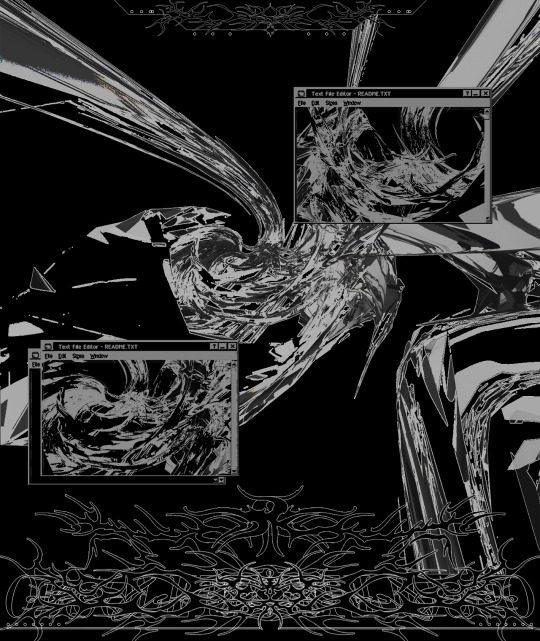
new graphic or smth
#art#artistsupport#design#blender#artists on tumblr#concept art#3d artwork#conceptual#metalheart#90s anime#graphic design#graphic#black and white#grunge#cybersigilism#tribalism#sigil#sigilism#cyber sigil#cyber tribal#cyber graphic#cyberpunk#futuristic#metal#heavy metal design#heavy metal
69 notes
·
View notes
Text
I m Lover arts tribal, Lover world tribal
Lover culture African, messicano ecc
Culture indi, Indiana, shamanic,
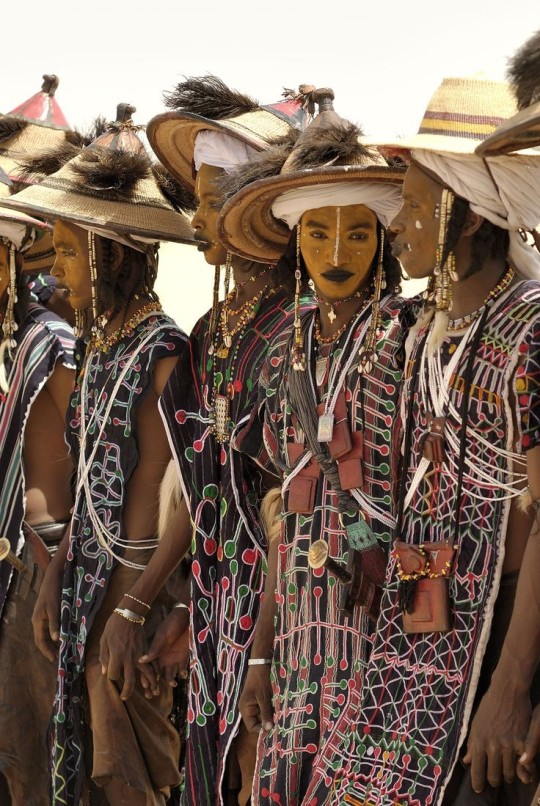


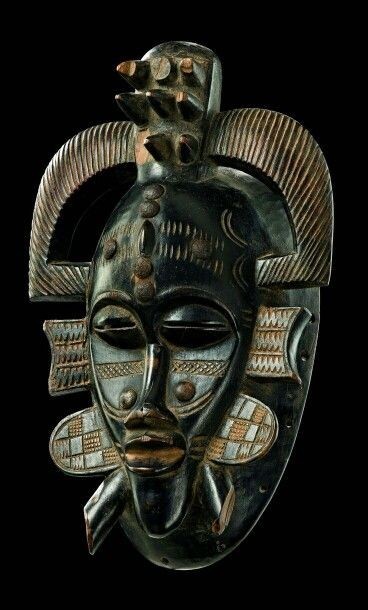
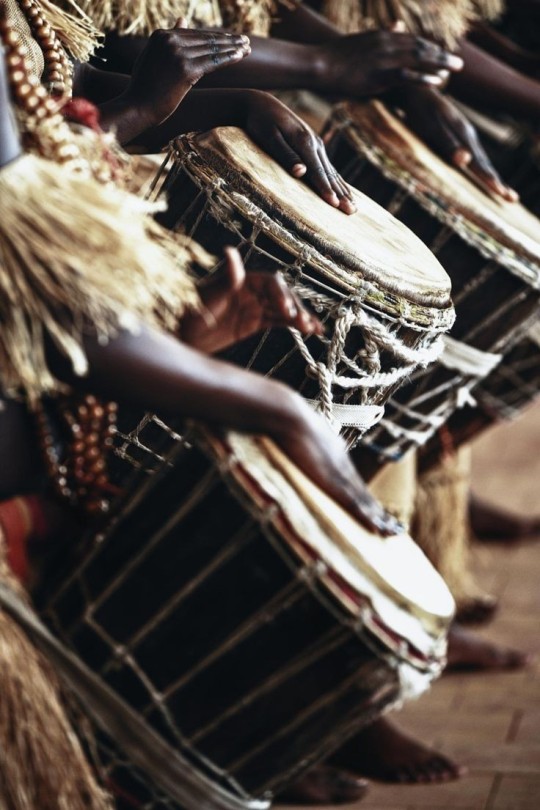

#tribal art#tribalism#arte tradicional#african#ancient#ancient art#ancient tribe#ancient traditions#tradicionalwitch#spiritual awakening#african culture#witch#occult art#shaman#shamanism
46 notes
·
View notes
Text
By: Matt Johnson
Published: Jan 27, 2023
“Christopher Hitchens: From socialist to neocon.” It was an irresistible headline because it’s a story that has been told over and over again. The novelist Julian Barnes called this phenomenon the “ritual shuffle to the right.” Richard Seymour, who wrote a book-length attack on Hitchens, says his subject belongs to a “recognisable type: a left-wing defector with a soft spot for empire.” By presenting Hitchens as a tedious archetype, hobbling away from radicalism and toward some inevitable reactionary terminus, his opponents didn’t have to contend with his arguments or confront the potentially destabilizing fact that some of his principles called their own into question.
Hitchens, who died in 2011, didn’t make it easy on the apostate hunters. To many, he was a “coarser version of [conservative commentator] Norman Podhoretz” when he talked about Iraq, and a radical humanist truth-teller when he went on Fox News to lambaste the Christian right: “If you gave Falwell an enema,” he told Sean Hannity the day after Jerry Falwell’s death, “he could be buried in a matchbox.” Then he gave Islam the same treatment, and he was suddenly a drooling neocon again. He defied easy categorization: a socialist who spurned ideology, an internationalist who became a patriot, a man of the left who was reviled by the left.
The left isn’t a single amorphous entity—it’s a vast constellation of (often conflicting) ideas and principles. Hitchens’s style of left-wing radicalism is now out of fashion, but it has a long and venerable history: George Orwell’s unwavering opposition to totalitarianism and censorship, Bayard Rustin’s advocacy for universal civil rights without appealing to tribalism and identity politics, the post-communist anti-totalitarianism that emerged on the European left in the second half of the twentieth century.
Hitchens described himself as a “First Amendment absolutist,” an echo of historic left-wing struggles for free expression—from Eugene V. Debs’s assertion of his right to dissent during World War I to the Berkeley Free Speech Movement. Hitchens argued that unfettered free speech and inquiry would always make civil society stronger. When he wrote the introduction to his collection of essays For the Sake of Argument in 1993, he had a specific left-wing tradition in mind: the left of Orwell and Victor Serge and C.L.R. James, which simultaneously opposed Stalinism, fascism, and imperialism in the twentieth century, and which stood for “individual and collective emancipation, self-determination and internationalism.”
Hitchens’ most fundamental political and moral conviction was universalism. He loathed nationalism and argued that the international system should be built around a “common standard for justice and ethics”—a standard that should apply to Henry Kissinger just as it should apply to Slobodan Milošević and Saddam Hussein. He believed in the concept of global citizenship, which is why he firmly supported international institutions like the European Union. He didn’t just despise religion because he regarded it as a form of totalitarianism—he also recognized that it’s an infinitely replenishable wellspring of tribal hatred.
He also opposed identity politics, because he didn’t think our social and civic lives should be reduced to rigid categories based on melanin, X chromosomes, and sexuality. He recognized that the Enlightenment values of individual rights, freedom of expression and conscience, humanism, pluralism, and democracy are universal—they provide the most stable, just, and rational foundation for any civil society, whether they’re observed in America or Europe or Iraq.
And yes, he argued that these values are for export. Hitchens believed in universal human rights. This is why, at a time when his comrades were still manning the barricades against the “imperial” West after the Cold War, he argued that the North Atlantic Treaty Organization should intervene to stop a genocidal assault on Bosnia. It’s why he argued that American power could be used to defend human rights and promote democracy. As many on the Western left built their politics around incessant condemnations of their own societies as racist, exploitative, oligarchic, and imperialistic, Hitchens recognized the difference between self-criticism and self-flagellation.
-
One of the reasons Orwell accumulated many left-wing enemies in his time was the fact that his criticisms of his own “side” were grounded in authentic left-wing principles. When he argued that many socialists had no connection to or understanding of the actual working class in Britain, the observation stung because it was true. Orwell’s arguments continue to sting today. In his 1945 essay “Notes on Nationalism,” he criticized the left-wing intellectuals who enjoy “seeing their own country humiliated” and “follow the principle that any faction backed by Britain must be in the wrong.” Among some of these intellectuals, Orwell wrote: “One finds that they do not by any means express impartial disapproval but are directed almost entirely against Britain and the United States. Moreover they do not as a rule condemn violence as such, but only violence used in defense of the Western countries.”
Hitchens observed that many on today’s left are motivated by the same principle: “Nothing will make us fight against an evil if that fight forces us to go to the same corner as our own government.” This is a predictable manifestation of what the American political theorist Michael Walzer calls the “default position” of the left: a purportedly “anti-imperialist and anti-militarist” position inclined toward the view that “everything that goes wrong in the world is America’s fault.”
Indeed, the tendency to ignore and rationalize even the most egregious violence and authoritarianism abroad in favor of an obsessive emphasis on the crimes and blunders of Western governments has become a reflex. Much of the left has been captured by a strange mix of sectarian and authoritarian impulses: a myopic emphasis on identitarianism and group rights over the individual; an orientation toward subjectivity and tribalism over objectivity and universalism; and demands for political orthodoxy enforced by repressive tactics like the suppression of speech.
These left-wing pathologies are particularly corrosive today because they give right-wing nationalists and populists on both sides of the Atlantic—whose rise over the past several years has been characterized by hostility to democratic norms and institutions, rampant xenophobia, and other forms of illiberalism—an opportunity to claim that those who oppose them are the true authoritarians. Hitchens was prescient about the ascendance of right-wing populism in the West, from the emergence of demagogues who exploit cultural grievances and racial resentments to the bitter parochialism of “America First” nationalism. He understood that the left could only defeat these noxious political forces by rediscovering its best traditions: support for free expression, pluralism, and universalism—the values of the Enlightenment.
Hitchens closes his book Why Orwell Matters with the following observation: “What he [Orwell] illustrates, by his commitment to language as the partner of truth, is that ‘views’ do not really count; that it matters not what you think, but how you think; and that politics are relatively unimportant, while principles have a way of enduring, as do the few irreducible individuals who maintain allegiance to them.” Despite the pervasive idea that Hitchens exchanged one set of convictions for another by the end of his life, his commitment to his core principles never wavered. They are principles that today’s left must rediscover.
Matt Johnson is a journalist and the author of the forthcoming book, How Hitchens Can Save the Left: Rediscovering Fearless Liberalism in an Age of Counter-Enlightenment, from which this piece is excerpted.
#Matt Johnson#How Hitchens Can Save the Left#liberalism#liberal ethics#universalism#pluralism#freedom of speech#freedom of expression#free speech#first amendment#identity politics#identarianism#woke authoritarianism#authoritarianism#tribalism#religion is a mental illness
22 notes
·
View notes
Text
By Sharon Brous
Rabbi Brous is the founding and senior rabbi of Ikar, a Jewish community based in Los Angeles, and the author of “The Amen Effect.”
A somewhat obscure text, about 2,000 years old, has been my unlikely teacher and guide for the past many years, and my north star these last several months, as so many of us have felt as if we’ve been drowning in an ocean of sorrow and helplessness.
Buried deep within the Mishnah, a Jewish legal compendium from around the third century, is an ancient practice reflecting a deep understanding of the human psyche and spirit: When your heart is broken, when the specter of death visits your family, when you feel lost and alone and inclined to retreat, you show up. You entrust your pain to the community.
The text, Middot 2:2, describes a pilgrimage ritual from the time of the Second Temple. Several times each year, hundreds of thousands of Jews would ascend to Jerusalem, the center of Jewish religious and political life. They would climb the steps of the Temple Mount and enter its enormous plaza, turning to the right en masse, circling counterclockwise.
Meanwhile, the brokenhearted, the mourners (and here I would also include the lonely and the sick), would make this same ritual walk but they would turn to the left and circle in the opposite direction: every step against the current.
And each person who encountered someone in pain would look into that person’s eyes and inquire: “What happened to you? Why does your heart ache?”
“My father died,” a person might say. “There are so many things I never got to say to him.” Or perhaps: “My partner left. I was completely blindsided.” Or: “My child is sick. We’re awaiting the test results.”
Those who walked from the right would offer a blessing: “May the Holy One comfort you,” they would say. “You are not alone.” And then they would continue to walk until the next person approached.
This timeless wisdom speaks to what it means to be human in a world of pain. This year, you walk the path of the anguished. Perhaps next year, it will be me. I hold your broken heart knowing that one day you will hold mine.
I read in this text many profound lessons, two particularly pertinent in our time, when so many of us feel that we are breaking. First, do not take your broken heart and go home. Don’t isolate. Step toward those whom you know will hold you tenderly.
And on your good days — the days when you can breathe — show up then, too. Because the very fact of seeing those who are walking against the current, people who can barely hold on, and asking, with an open heart, “Tell me about your sorrow,” may be the deepest affirmation of our humanity, even in terribly inhumane times.
It is an expression of both love and sacred responsibility to turn to another person in her moment of deepest anguish and say: “Your sorrow may scare me, it may unsettle me. But I will not abandon you. I will meet your grief with relentless love.”
We cannot magically fix one another’s broken hearts. But we can find each other in our most vulnerable moments and wrap each other up in a circle of care. We can humbly promise each other, “I can’t take your pain away, but I can promise you won’t have to hold it alone.”
Showing up for one another doesn’t require heroic gestures. It means training ourselves to approach, even when our instinct tells us to withdraw. It means picking up the phone and calling our friend or colleague who is suffering. It means going to the funeral and to the house of mourning. It also means going to the wedding and to the birthday dinner. Reach out in your strength, step forward in your vulnerability. Err on the side of presence.
Small, tender gestures remind us that we are not helpless, even in the face of grave human suffering. We maintain the ability, even in the dark of night, to find our way to one another. We need this, especially now.
Here’s the second lesson from that ancient text. Humans naturally incline toward the known. Our tribes can uplift us, order our lives, give them meaning and purpose, direction and pride. But the tribal instinct can also be perilous. The more closely we identify with our tribe, the more likely we are to dismiss or even feel hostility toward those outside it.
One of the great casualties of tribalism is curiosity. And when we are no longer curious, when we don’t try to imagine or understand what another person is thinking or feeling or where her pain comes from, our hearts begin to narrow. We become less compassionate and more entrenched in our own worldviews.
Trauma exacerbates this trend. It reinforces an instinct to turn away from one another, rather than make ourselves even more vulnerable.
There is another important lesson from that ancient text. On pilgrimage, those who enter the sacred circle and turn left when nearly everyone else turns right are grieving or unwell. But the text offers that there is another who turns to the left: the person sentenced to ostracization — in Hebrew, the menudeh.
Ostracization was a punishment used sparingly in ancient times. It only applied to people who were believed to have brought serious harm to the social fabric of the community. The ostracized were essentially temporarily excommunicated. They had to distance themselves from their colleagues and loved ones, they were not counted in a prayer quorum, and they were prohibited from engaging in most social interactions. And incredibly, they, too, entered the sacred space, where they, too, were asked: “Tell me, what happened to you? What’s your story?” And they, too, were blessed.
This is breathtaking. The ancient rabbis ask us to imagine a society in which no person is disposable. Even those who have hurt us, even those with views antithetical to ours must be seen in their humanity and held with curiosity and care.
We desperately need a spiritual rewiring in our time. Imagine a society in which we learn to see one another in our pain, to ask one another, “What happened to you?” Imagine that we hear one another’s stories, say amen to one another’s pain, and even pray for one another’s healing. I call this the amen effect: sincere, tender encounters that help us forge new spiritual and neural pathways by reminding us that our lives and our destinies are entwined. Because, ultimately, it is only by finding our way to one another that we will begin to heal.
15 notes
·
View notes
Text
"us versus them" is the biggest trap we invented for ourselves
1forall0allfor1
#duality#polarization#conflict#war#politics#economics#class system#caste system#destructive#immaturity#unconscious#unaware#tribalism#nations#society#cultures#civilization#humanity#cooperation#evolution
45 notes
·
View notes
Text
i'm realizing very quickly that i have a raging hard on for media that explores the detriment of war and weaponry, dives into the hypocrisy of human tribalism and false dichotomy, and heavily criticizes capitalism--of course with the pretty no filter horror bow<3
and i'm okay with that<3<3<3
#fallout#the boys#fallout amazon#the boys amazon#really doing an incredible job#helps that they're actually making an effort to honor the source material and messaging if not just being huge fans from the start#and saying sayonara to purity culture#i like that trend#it gives us much better adaptations#lol#military industrial complex#tribalism#capitalism#art#horror#meaningful media#food for thought#if ya haven't yet#if ya like fallout ya might like the boys#if ya like the boys ya might like fallout#any recommendations on the same vein?
6 notes
·
View notes
Text
There's a subtle trend I've just consciously noticed (which is probably going on from different parts of the political spectrum but I've mainly seen this from anti-woke culture warriors) where the term referring to the camp they're criticizing includes intensifying adjectives like "far", "radical", or "extreme" (e.g. "the far left", "the radical left") while, perhaps not quite in the same breath but in the same discussion, they seem to be tarring that whole general side of the political spectrum with the beliefs they're criticizing without seeming to recognize the implied contradiction.
#culture war#discourse#tribalism#endorsed with low confidence#maybe this is unfair#and the intended point is that extreme voices have the power
25 notes
·
View notes
Text
A thought about 'Minority Groups'
As I said in previous Essays- while (Indigenous) Black Americans continue to get lip service & empty tributes, i'm looking at WHO is getting WHAT. There has been a lot of activity under The Biden Administration, & I found myself looking at these events from an abstract perspective. 'Jim Crow' Joe said that he appreciated Black America 'having His back' throughout the years, & he would have Ours. Since that statement, Native Americans, Asian Americans, Latinx (Citizens & Illegals), LGBTQ..., have All received legislation & funding. On top of the $113 Billion spent in Ukraine over the last Year, Israel continues to receive Billions annually from The U.S. Now provisions have been made for 100,000 Afghani & 100,000 Ukrainian refugees to relocate to America.
We Black Americans/ ADOS/ FBA/ Freemen/ Indigenous Americans can be a well intentioned, but socially naive group. The efforts of White Supremacists w/i Local, State, & Federal Government Agencies to systemically oppress Our Community has created a 'Collective Consciousness' that empathizes (abstractly) w/ the oppression of other Ethnicities. We can identify w/ the hardship of Others, & when possible, We do what We can to combat that hardship. We fought against the oppression of American Slave Codes, Black Codes, & Jim Crow Laws; simultaneously, We fought for The Rights of Irish, Chinese, Mexican, Jewish, Italian, Haitian, Cuban, Puerto Rican, Panamanian, Filipino, & Japanese immigrants that faced a measure of the oppression We experienced here.
Looking at this 'Collective Consciousness' historically, a Pattern can be seen over the centuries. Every Immigrant Group in America has gone through a 'Hazing Period', where they are the target of Social Bias & Prejudice. During this 'Social Phase', newcomers tend to identify w/ the Black Americans that they are in contact w/. We encircle these people w/i Our Community, & take the lead in protesting injustices against them. In the past, 'Brownfolk' tended to identify w/ Us. We shared Culture & Traditions; in some instances, we intermarried. In this Era, things have changed. If Black Immigrants & 'Brownfolk' start off in Black Communities, they don't always stay.
By the 2nd Generation, their children either identify w/ The Black Experience in America, or they make every effort to move away from it. Ethnic Enclaves have literally 'popped up' outside of Black Communities over the last 30Yrs, creating true Buffer Zones between Black & White Communities. Black America was oblivious to any possible agenda amongst Minority Groups- We also identified as Minorities, & assumed We were all in the same boat. Black Power isn't a selfish endeavor- Our Right of Autonomy grants other Minorities the same Right. American History substantiates this truth. To be honest, We were naively ignorant about the 'Culture' of these Minority Groups in their Native Land. We assumed they shared a similar experience of White Supremacy.
We knew about the Racism in Europe, but were unaware of the Tribalism that existed in Afrika & The Caribbean; or the Colorism that exists in Arabia, Asia, & Latin America. Many of the minorities that We had 'First Contact' w/, were friendly. As a Marginalized People, they had something in common w/ Us. We collaborated in business & in Social Action. We shared Our Community, & worked together to improve Our collective Quality of Life. We thought that We were united in the fight against White Supremacy. Then a funny thing happened- one by one, these 'Marginalized Groups' were accepted into Society, & given Rights & Privileges that We were (still) denied.
Over the Centuries, We watched- as Irish, Jewish & Italian neighbors elevated their status. The more they achieved, the more distance they placed between Us. Collectively, each group became increasingly intolerant of Blackfolk. They began to speak the Anti- Black rhetoric of Mainstream America. Our old neighbors appeared to 'pledge allegiance' to the same people that discriminated against them. Black Americans were now victims of mob violence, stemming from (perceived) competition that Irish & Italians had w/ Black Men for Jobs. The Irish in particular, were brutal in their efforts to push Black Men out of specific Trades & Sports. The only reminder of Black involvement in Horse Racing, are 'Lawn Jockeys', that many Black People see as racist. 150Yrs- 200Yrs ago, Black Jockeys dominated Horse Racing.
As disappointed as We were w/ the actions of the Irish, Italians, & Eastern Europeans, the current Anti- Black American sentiment held by today's 'Minority Groups' (POC), truly stings! We can't say that We didn't see it coming though. Many (Indigenous) Black Americans have an experience of being 'in the company' of a given Minority Group. When they are in mixed company, the conversation is civil; but when they outnumber Us, We begin to hear the stereotypes about Us. The larger the advantage, the more prejudiced the language becomes. While they may repeat White Supremacist talking points, they lack the power to truly be 'Racist'. That being said, quite a few individuals have ridden this rhetoric into Mainstream notoriety; the names represent a literal Who's Who in Pop Culture & Politics.
Collectively, these Minority Groups seem comfortable w/ their place in AmeriKKKa's Caste System, as long as they are 'positioned' above Black America... Hispanic & Asian women are currently testing the racial waters, by way of recent attempts to gauge their degree of White Privilege. Their actions legitimize the notion that White Privilege is defined by Anti- Black Racism & Oppression. The actions of these 'Karens of Color', are no different from the garden variety Karen. All of these women are trying to exercise their 'Right', but Women Of Color are also establishing their position in the Social Caste. I personally don't understand the need to gauge one's 'Power' on the ability to harass or harm what is believed to be a Soft Target. I thought that White Supremacy is a philosophy premised on strength & 'Might makes Right'- Where is the challenge?
Joe Biden's Policy actions have made clear his intention to extend White Privilege to Asians & Hispanics. Like (White) LGBTQ... individuals, & European Jews, Asians enjoy meaningful Hate Crime Legislation. Meanwhile, Black America still fights for this legislation, as the #1 Victim of Hate Crimes in America- according to the latest FBI Crime Stats. For Latinx, Biden is fast tracking Citizenship for illegal immigrants in Sanctuary Cities. Many Cities are suggesting Drivers Licenses for illegal immigrants, while California is talking about hiring non- Citizens for the LAPD & State Police. In short, 'America' has become a Multicultural & Multilingual Nation. All of this is very curious. Just a generation ago, Local, State, & Federal Officials were adamant that America is a 'Judeo- Christian' Nation that speaks 'English'. Efforts to make Spanish an Official 2nd Language were quickly shot down. 100Yrs ago, America was a 'White Man's Country!'.
Black Americans were looking for a Seat at The Table, but didn't have a problem sharing w/ Our fellow 'Minorities'. Affirmative Action was designed to level the playing field between Blackfolk & Whitefolk. It was supposed to make up for The New Deal & G.I. Bills that excluded Black Families. Despite this, We didn't complain when these resources were diverted (via Diversity Initiatives) away from Us, & given to people who NEVER had to experience what We went through. We were as compliant as Cows being bled by Vampire Bats, until We renewed the Reparations Conversation. Suddenly, We were xenophobes. The loudest voices have come from 2nd & 3rd generation Americans, who (collectively) enjoy a better Quality Of Life than the average Black American. The fact that the children of immigrants from the 1980s are now attacking Black America w/ White Supremacist talking points, is simply mindboggling!
An Ethnic Group that appears to do A LOT of 'Racial double dipping', are Hindi/ Pakistani/ Bangladeshi Americans. They are conveniently 'Black' when there is opportunity, but otherwise, they not only identify as 'White'; they subscribe to a visceral Anti- Black sentiment that needs to be addressed. This is important, because Joe Biden is putting Kamala Harris at the forefront of his Re-election Campaign. America is still calling Kamala the 1st 'Afrikan American VP', but both of her parents are Brahmin. Kamala's 'Black Experience' ends at Howard University & Alpha Kappa Alpha Sorority Inc. She is otherwise an Elitist, who has a decades long resume of undermining Black Californians (Black Women in particular), & looking out for her own best interests.
Former Governor of South Carolina & U.N. Ambassador, Nikki Haley (Nimarata Nikki Randhwara- Haley), is the flip side of Kamala Harris. Both Women are Brahmin, but while Kamala is 'Asian' w/ a cultural leaning towards Black America; Nikki is 'Brown', but has consistently shown a cultural leaning towards White Privilege. Both Women highlight a simple truth- that 'Black' Issues aren't 'Brown' Issues. People Of Color (POC/ BIPOC) tend to be victims of Discrimination, more than Racism. This is evidenced by their Collective Autonomy throughout America. They have a Right of Expression that Indigenous Black Americans never truly had; not even during Reconstruction. It may be due to their sovereign status, but it's clear that they DON'T share Our plight.
Vivek Ramaswamy is yet another type. He is a 2nd Generation child of [Elitist] Asian Immigrants, but he tries to weave an Ellis Island narrative out of his experience. Like Kamala Harris & Nikki Halely, both of Ramaswamy's parents were Post Graduates w/ more education than the average [White] American Family. He gives the impression that they were Blue Collar Workers living the American Dream for their children. Ramaswamy casually speaks about his 'rough' Public School experience in Cincinnati, before going to a Private (Jesuit) School- that 'didn't conflict w/ his Hindu values'. This experience supposedly positioned him for College, Post Grad work, & starting his 1st Biotech Company... He implies that EVERYONE gets this opportunity in America.
Kamala Harris' Mother had the support of the Black Community in Oakland & Berkeley. Nikki Haley's Father had the support of (HBCU) Voorhees College, where he worked for nearly 30Yrs. Despite that support for their Parents, Nikki Haley & Kamala Harris have done NOTHING meaningful or specifically for Black Americans. In fact, both have supported measures that were detrimental to their Black Constituents; i'm reminded of The Tale of 'The Tortoise & The Scorpion'... Vivek Ramaswamy takes it up another notch. His 'Anti- Woke' Campaign, is a not too subtle Anti- Black dog whistle. Ramaswamy has the audacity to use his Experience (as a 2nd Generation Brahmin- American) to minimize, if he can't outright disclaim The Black American Experience altogether.
Vivek Ramaswamy's family has been in America for roughly 40Yrs. That means that they arrived sometime in the 1980s, nearly 20Yrs after the End of the Jim Crow Era; but Vivek feels that he can speak about the History of Anti- Black Racism in America. Ramaswamy, along w/ Harris & Haley represent the 'People Of Color' Prospects for POTUS. The similarity of their Agendas speaks volumes. All of them benefited from opportunities meant for Blackfolk, but they lecture Us about 'bootstrapping'. Add in Joe Biden's thoughts about Latinx being 'the largest Minority Group in America'(???), along w/ weird Culture Appropriation rhetoric coming from Eva Longoria, then John Leguizamo, & it looks like a conspiracy.
It's crystal clear that collectively speaking, Indigenous Black America has NO FRIENDS. We should act accordingly... These Minority Groups forget that Our 'Culture' is fighting White Supremacy, not bowing to it. We're not Here for a Come Up, or a Hand Out- We're indigenous to This Land. We were Here before the first Colonizer, & We'll be Here long after the Last.
-Just Sayin'
#CircleTheWagons#AntiBlackRacism#The13Percent#ADOS#FBA#Freemen#Tribalism#Colorism#LineageMatters#AgeOfProphecy
42 notes
·
View notes
Text
Humanity will never achieve a global golden age by continuing to cling to the 'us vs them' tribal mindsets that evolved during the stone.
5 notes
·
View notes
Text
New Post has been published on Books by Caroline Miller
New Post has been published on https://www.booksbycarolinemiller.com/musings/a-curmudgeon-in-the-family-of-man/
A Curmudgeon In The Family Of Man
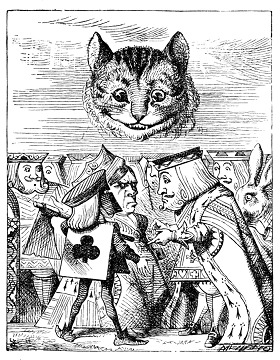
I was grateful to my neighbor for helping me with a technical problem. He’s the resident guru on computers at the retirement center and far too modest about himself. Aware that I might need his advice in the future, I asked if he’d care to adopt me despite my advanced age. A smile parted his lips as his gaze dropped to the carpet. “We’re all family here,” he said. I walked away thinking he’d uttered a beautiful notion, though I tend to reject sentiments that are warm and fuzzy. I’m old enough to know that the history of “the “family of man” is dysfunctional. Since Caine slew Able we’ve worked to perfect the art of violence. Murder isn’t the kind of glue to hold society together, so we attempt to contain it by inventing rules. Murder on a grand scale we call war. The rules on those occasions are those of The Geneva Convention. The smaller stuff we leave to religion, laws, politics, and the whims of tyranny. But, like the potter who leaves his fingerprints upon newly shaped clay, because we are flawed creatures, the systems we create can be weaponized and used to threaten others. Justice, after all, is the gloved fist of vengeance. Bill Clinton, our 42nd President, sees philanthropy as a better way to promote social cohesion. Philanthropy can help bust through political and cultural gridlock by showing what can be done. He has many true believers, so many that at his last conference on philanthropy, a thousand do-gooders had to be turned away. Enthusiasm on this scale is heartwarming, but I’m a curmudgeon. I’ve never been keen to turn the world over to philanthropists. Who are they, after all, but people otherwise known as oligarchs? Nick Caraway in The Great Gatsby told us about them. They are people who don’t think like the rest of us. I doubt any butcher, baker, cowboy, or tailor would choose to live in a Martian colony under Elan Musk’s rules. I place my faith in “we the people.” Democracy’s collective mind is where we are most likely to find common ground. Alexei Navalny, Vladamir Putin’s murdered opponent, was a man of the people. Having survived attempts to assassinate him, he warned his followers their fate didn’t depend upon his survival but upon their will. If it happens, if they decide to kill me, it means we are incredibly strong. We need to use that power. (“A Hero of Our Time,” by Mariam Elder, Vanity Fair, April 2024, pg. 34.) His words may seem like a whistle against the dark, but the Ukrainian people are a living example of that courage. Their David and Goliath story can set this curmudgeon’s heart to racing. Even so, dreams can become fodder for blind ambition. Our Republican House has placed a chokehold on future aid to that country, reversing their past support. They did it to placate their revenge candidate, Donald Trump, in the upcoming presidential election. Trump holds a grudge against Ukraine and is happy to curry the favor of their invader, Vladimir Putin. If elected, our former president promises to leave Ukraine to the Russians. The predatory world in which we live is Nature’s doing, but humans have wasted no time in making a hell out of the heaven they inherited. Some attempt to escape the violence by turning to drugs or alcohol. Others rely on religion, mysticism, or conspiracy theories for the dopamine high that makes them happy. Artificial Intelligence (AI) and augmented virtual reality could provide other avenues of escape. Their illusions might help us create worlds so satisfying, that many won’t return to planet Earth. For proof of that possibility, observe how people are mesmerized by their smartphones. We humans aren’t algorithms, however. Wherever we go, we drag our dark side behind us like a beloved toy. That’s a drawback to consider as we cheer the coming of augmented reality. Despite the challenges ahead, like Navalny, I have hope because….well, what else is there? Fraternity, equality, and liberty are pretty good ideas. To obtain them all we have to do is curb our tribal nature, though some have argued it doesn’t exist. Whether Instinctive or learned, history confirms that group-think seems natural to us. We desire to be among people who look like us and share our values. That passion for conformity rivals our growing need to respect diversity and sometimes makes democracy seem like a fool’s dream. Given my doubts about the future of mankind, I left the caring gentleman at the retirement center with one request. “please don’t include me as a member of the community. I prefer to be the resident alley cat.”
#Alexei Navalny#Bill Clinton#Donald Trump#Elan Musk#Mariam Elder#Nick Caraway#oligarchs#philanthropy#The Family of Man#The Geneva Convention#The Great Gatsby#tribalism#Vladamir Putin
3 notes
·
View notes
Text

𝘙𝘐𝘛𝘜𝘈𝘓
4 notes
·
View notes
Text
youtube
The Unseen Problems With The Re-Tribalizing of America | Victor Davis Hanson
Victor Davis Hanson explores the impact of tribal identities on citizenship and society. He discusses how America's meritocracy is under threat, and what it means for our future.
He makes some very good points here, some of them counter-intuitive to what you would expect.
7 notes
·
View notes
